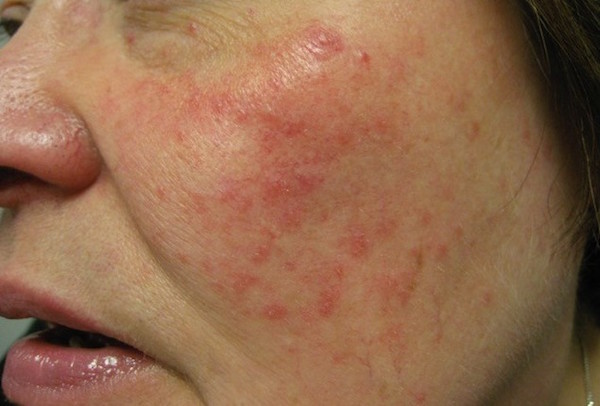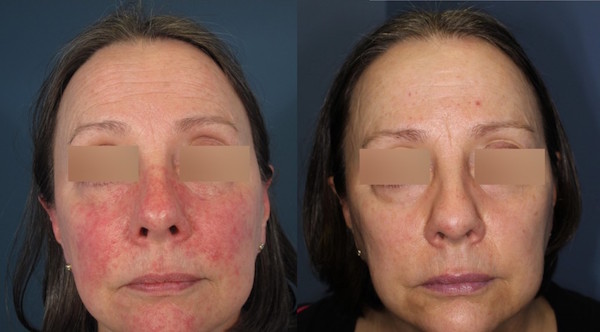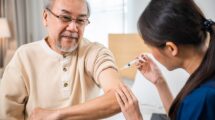
Do you get red in the face even when you’re not embarrassed? It might be rosacea. Two million Canadians are affected by the common inflammatory skin condition (pronounced row-zay-sha) that causes redness on the face.
People at highest risk include:
– Adults aged 30 to 50.
– Fair skinned individuals, including those of Northern European or Celtic descent. Yes, that includes redheads or “gingers.”
– Women more often than men.
– Those with a family history of rosacea.
– Folks with extremely sensitive skin.
“Since rosacea is visible on the face, there can be significant emotional and social effects for sufferers including embarrassment, anxiety and depression,” says Dr. Jason Rivers, dermatologist and president of the not for profit Acne and Rosacea Society of Canada.
A lot of people don’t know much about rosacea or what they can do about it, so the society is sharing five things you need to know:
1 – Rosacea often affects the eyes. Although mainly known as a skin condition, up to half of sufferers also experience eye involvement known as ocular rosacea. This can cause red, irritated, watery eyes, red eyelids, frequent styes and an irritated, dry or gritty sensation. Conjunctivitis or more serious eye conditions can develop in some cases.
2 – Rosacea can be successfully controlled. While there is no cure, there are many new and existing medical options available that can bring significant improvement to symptoms such as facial redness, skin sensitivity, pimples, pustules, visible blood vessels and flushing. In the past 3 years, Health Canada has approved 3 new treatments that add to therapy choices.
3 – Rosacea is often mistaken for adult acne. There is a type of rosacea with acne-like pimples and pustules. Problems may occur when harsh, over-the-counter acne treatments are used as these will likely worsen symptoms. A correct diagnosis is needed. Consider seeking the expert care of a dermatologist.
4 – Sufferers have a 5 times higher risk for depression. Rosacea is more than skin deep. It can cause significant emotional effects such as anxiety and depression. A feeling of being stigmatized, branded or shamed by others for having a red face makes this situation worse. Some 75% of patients report low self-esteem.
5 – Self-care measures can play a vital role in keeping rosacea under control. Watching your diet, avoiding everyday triggers and gentle skin care can limit outbreaks and play an important role in keeping rosacea under control.

Image courtesy Dr. Jason Rivers
About the Acne and Rosacea Society of Canada:
The society, led by Canadian dermatologists, offers hope and help to sufferers by providing independent, reputable and current information on rosacea and raising awareness. For more, visit www.RosaceaHelp.ca. To join the conversation on Facebook and Twitter, use #5thingsaboutrosacea.






